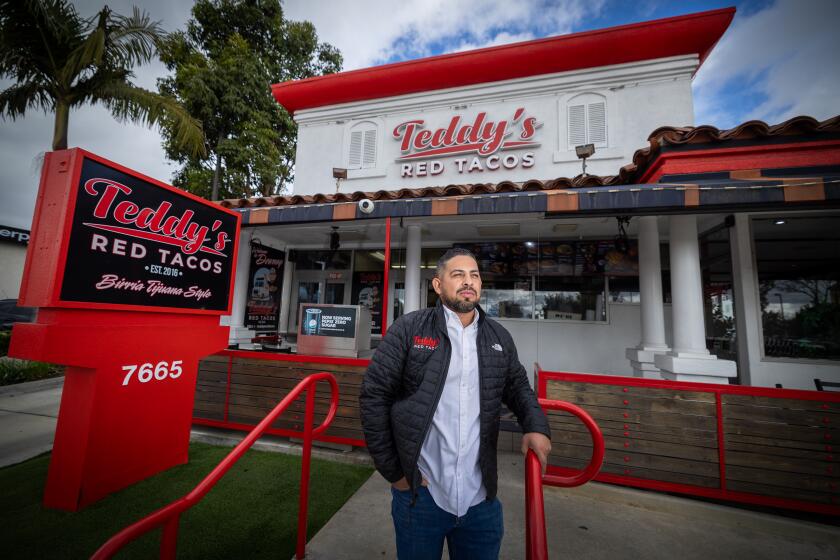Be Neighborly in Baja
- Share via
The fate of the Baja Peninsula has long been linked to California. In the 1930s, revered Mexican President Lazaro Cardenas granted free-trade-zone status to Tijuana, noting the trade potential stemming from its nearness to the United States. He was right. Trade between Tijuana and California flourished dramatically. Tijuana today assembles about 25% of all television sets sold in the U.S. California is the third-largest investor in Tijuana, after the U.S. as a whole and Asia.
In the ‘50s, Tijuana became an important launching pad for immigrants waiting for a chance to jump the border fence, then a puny chain-link affair, for the opportunities of the Golden State. A decade later, international drug cartels also claimed the border city, gaining easy access to U.S. customers.
For as long as anyone can remember, American teenagers have drowned themselves in cantinas and dance clubs in the shady neighborhoods of Tijuana, while middle-class families of the city have demanded that authorities uphold the rule of law. Last year, 2,764 Americans were arrested in Tijuana on charges of sex crimes, firearms violations, narcotics trafficking and disorderly conduct, the latter charge accounting for half the total.
Lately, thousands of elderly Californians have joined the pilgrimage to Baja, shopping for cheaper prescription drugs. The savings are big, often up to 75% below U.S. prices. The problem, though, is that there are risks some people don’t always take into account. For instance, many of these buyers don’t know or prefer to ignore that in order to buy their medicines, they need a prescription from a Mexican doctor. The problem gets worse when they want to purchase highly controlled substances such as Valium, Ritalin, Percodan and Darvon. In the last 18 months, 67 Americans have been jailed for buying a prescription drug without a Mexican prescription. Small retail buyers usually go free after a short scare. Others, 12 to be exact, whose large purchases made their claim to these medicines murky, are spending a longer stay in a Tijuana jail.
The publicity surrounding these cases has had an effect on tourism. The Tijuana Pharmacists Assn. is so concerned with the arrests that it has launched an educational campaign to let Americans know they can buy their prescription drugs in Mexico as long as they do it the right way -- such as having a Mexican doctor transfer a U.S. prescription onto a Mexican scrip.
Some of Baja’s problems seem overwhelming. The drug lords won’t leave the peninsula as long as the demand from U.S. addicts continues and corruption riddles local law enforcement. Would-be emigrants won’t leave as long as California’s economy can absorb them and they can’t find a decent job at home.
But in the cases of the American young and the elderly, the solution to their problems couldn’t be simpler. Don’t do abroad what you wouldn’t do at home. Tijuana won’t ever be Disneyland, and its merchants probably don’t want it to be. It should keep its across-the-border flavor. But as all the recent arrests prove, there are plenty of Bajans who are not amused by drunks urinating in doorways and fighting in the street, or by would-be drug dealers pretending to need 1,000 Valiums for personal use.
More to Read
Sign up for Essential California
The most important California stories and recommendations in your inbox every morning.
You may occasionally receive promotional content from the Los Angeles Times.










